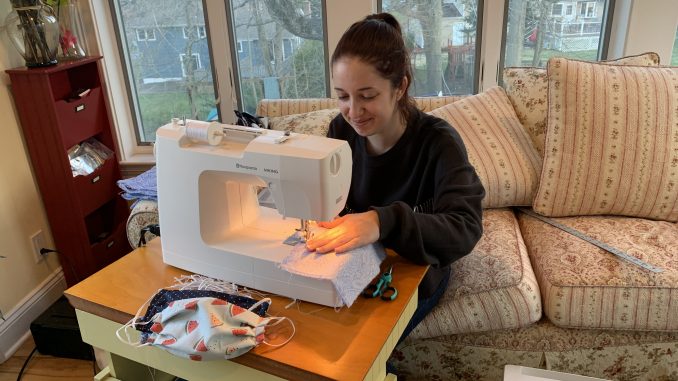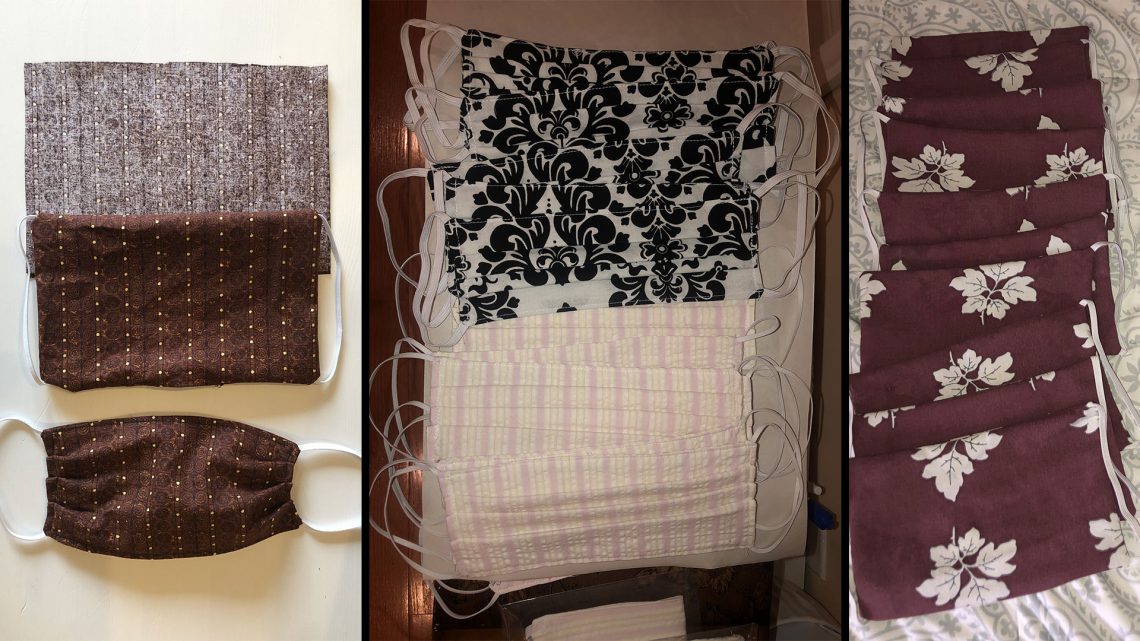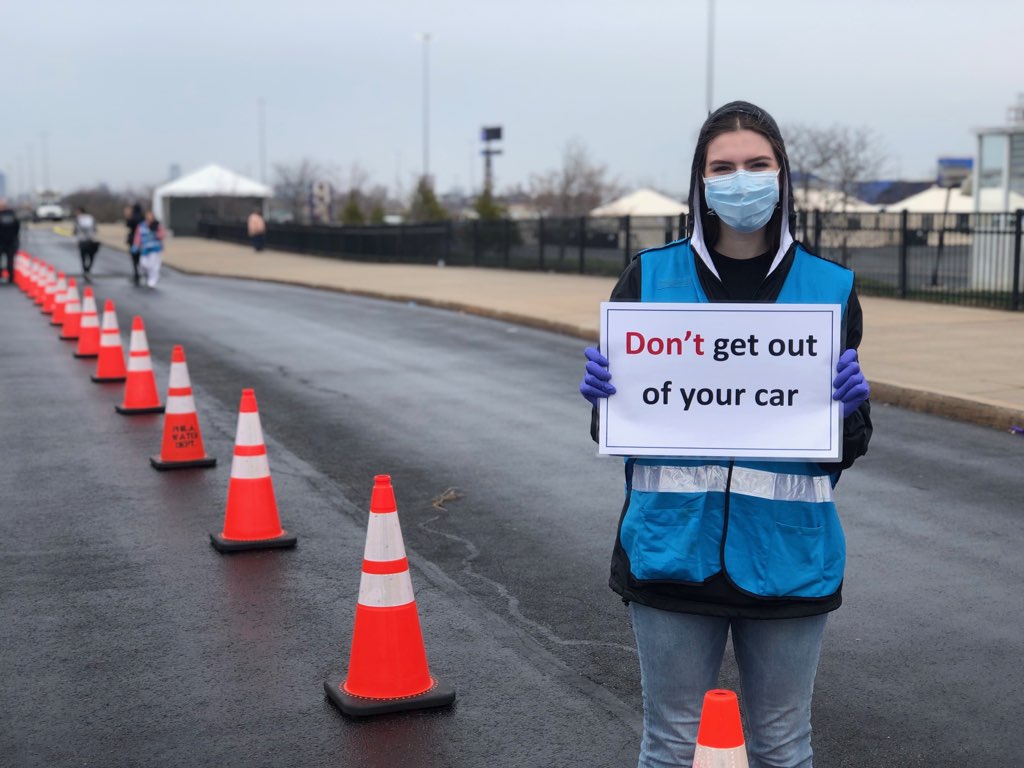
A plastic bin full of homemade surgical masks, each wrapped in a white package with names written on the front, sits in front of Christina Sayoc’s house in Bala Cynwyd.
Dozens of residents in Sayoc’s community have requested the masks because they are at risk of contracting COVID-19, a strain of the coronavirus. To minimize physical contact with others, Sayoc leaves the reusable masks on her porch and trusts the right people to pick them up.
“We’re making, like, basically as many as we can,” said Sayoc, a junior business management major. “A lot of us in my family have kinda joined together to do this as a family.”
As COVID-19 continues to spread across Pennsylvania, some Temple University students are going beyond their shared responsibility of practicing social distancing to play an active role in fighting the coronavirus. Since classes moved online beginning March 16, they are volunteering to help medical professionals contain the virus.

There are 177 confirmed cases of COVID-19 in Philadelphia and 851 in Pennsylvania, The Temple News reported.
The volunteerism of people like Sayoc has become more urgent as hospitals across the nation face a shortage of protective gear, including masks, that are important in shielding healthcare workers taking care of patients with COVID-19, the Washington Post reported. Homemade masks can be used as a “last resort” for health care providers in need of protective gear, according to the Centers for Disease Control and Prevention.
Becca Feldman, a junior fine arts in fibers and materials studies major, bought close to $150 worth of fabric, elastic and thread to make dozens of masks that can be washed and reused by their users. It takes approximately 15 minutes to make one mask, she said.
“These masks will be good just to protect people if they’re going outside, or especially if you’re in a hospital, if you’re in a setting where you need to protect yourself, if you’re immunocompromised, or you’re more susceptible to being infected,” Feldman said.
If soap and water are not available, use alcohol-based hand sanitizer with at least 60 perecent alcohol. If you cough or sneeze, wash your hands immediately after.
Avoid touching your eyes, nose, and mouth with unwashed hands.
Clean high-touch surfaces, like tabletops, doorknobs, toilets, keyboards and tablets. Use a household cleaner to disinfect the surfaces.
Feldman was inspired to make the masks on behalf of friends who are immunocompromised, she added.
“I would just like to make that extra effort, that extra step to help out in whatever way I can, and if I have the skill to sew, I’d like to put it to good use,” she said.
Sayoc is fielding requests for masks through social media and has given packages to several healthcare workers in her community who bring them back to their respective hospitals, she said. The project is partially financed by donations that Sayoc and her family have received to buy elastic, she added.
“We know that, like, they’re obviously not as good as what the doctors could get,” Sayoc said. “But at this point, I think anything is better than nothing.”
Volunteerism is not limited to making masks. Eyasu Woldu, a junior computer science major, has been working on an open-source coding project to help Ethiopia’s Ministry of Health develop applications to help its workers during the COVID-19 outbreak, he said.
Woldu, an immigrant from Ethiopia, is part of a group of approximately 800 volunteers from across the world helping in the project.
“Basically, what we’re doing is we’re developing software, tools and applications to raise public awareness, as well as to aid with … tracing people who might have had contact with the virus,” Woldu said.
In Ethiopia, there are 11 cases of COVID-19, the New York Times reported.

Emma Ewing, a dance and sociology double major, helped to direct traffic at Philadelphia’s first COVID-19 testing center at Citizens Bank Park last Friday. Volunteering with the Philadelphia Medical Reserve Corps, she initially hesitated at the thought of being around people who may have the virus, she said.
“I guess I was a little bit worried. But I think the procedures that the [Medical Reserve Corps] provided protected us well,” Ewing said. “Sure, it was a little bit of a risk, but it was, like, one I was willing to take because I was willing and able to help.”
“I know a lot of my friends have been very adamant about distancing themselves from others,” she added. “So I think a lot of people are doing their best in their full capacity to take action.”


Be the first to comment